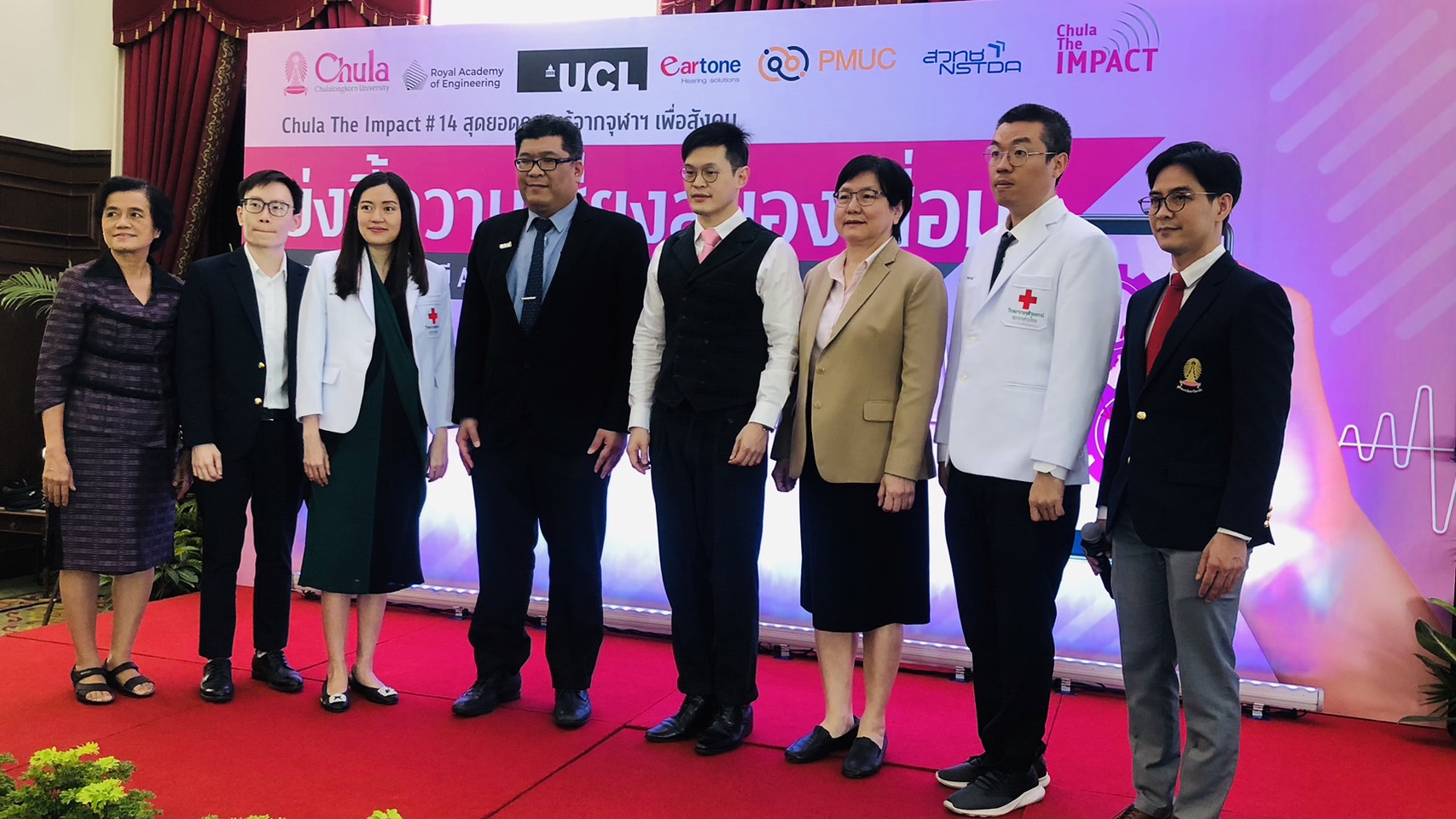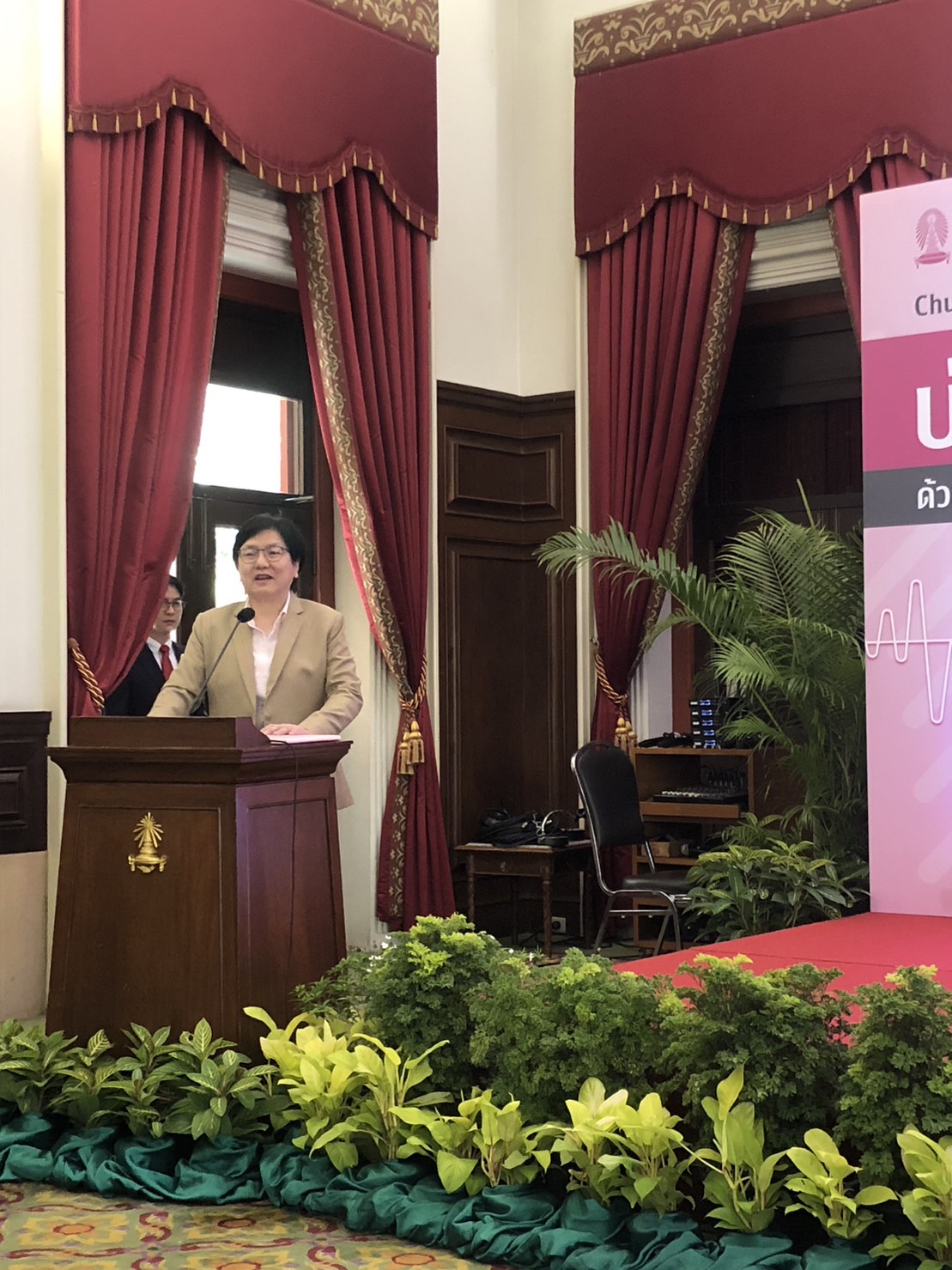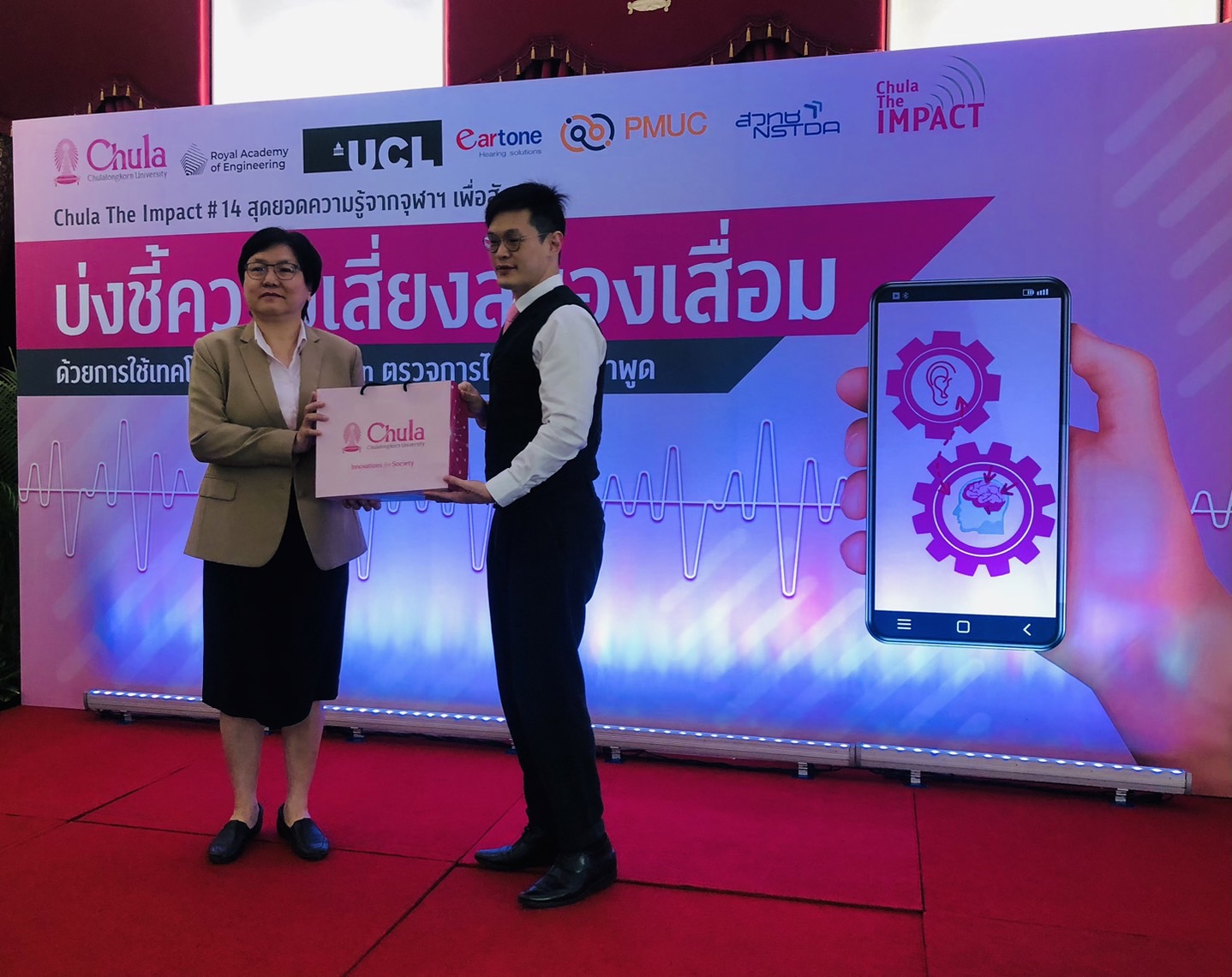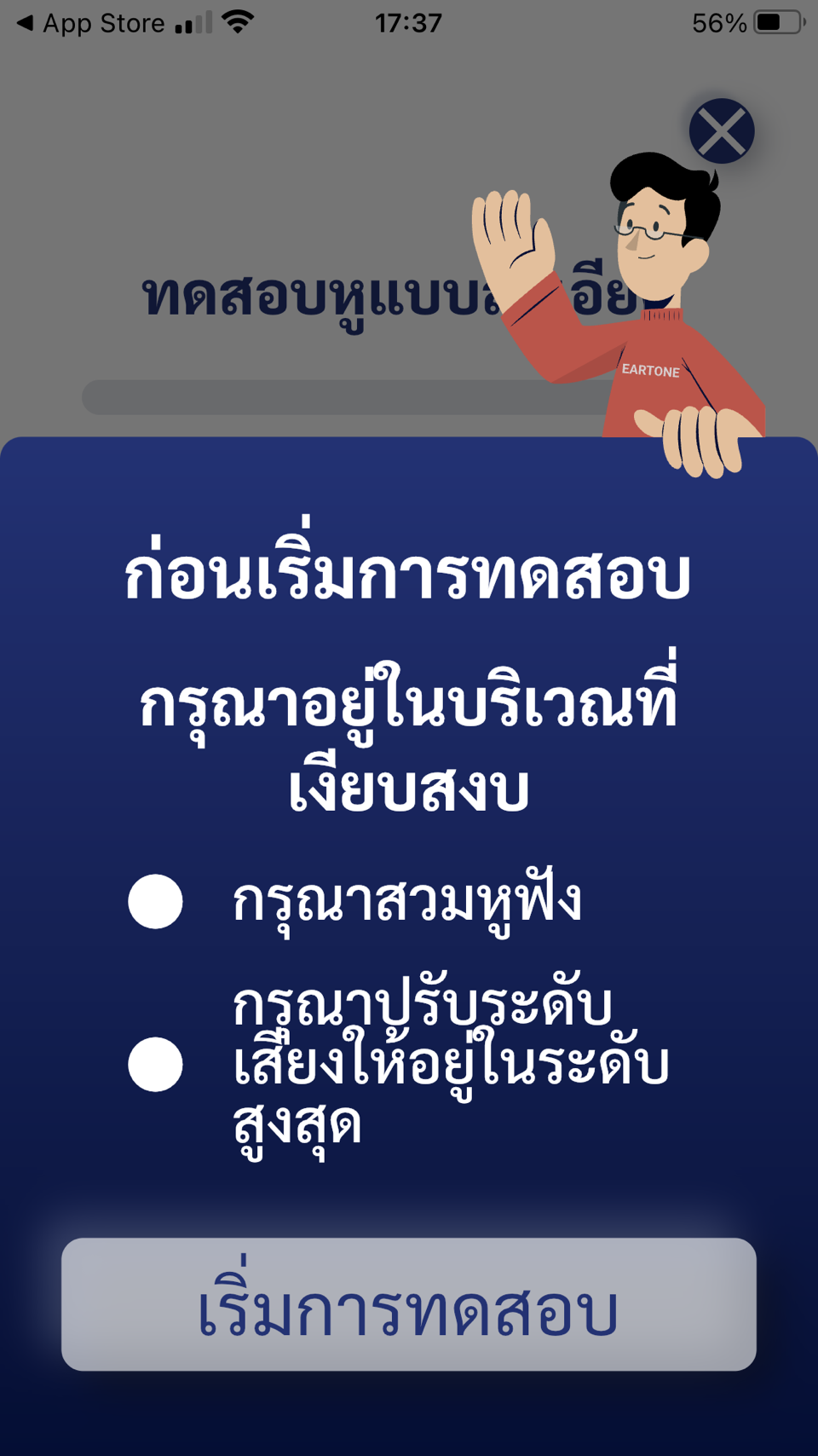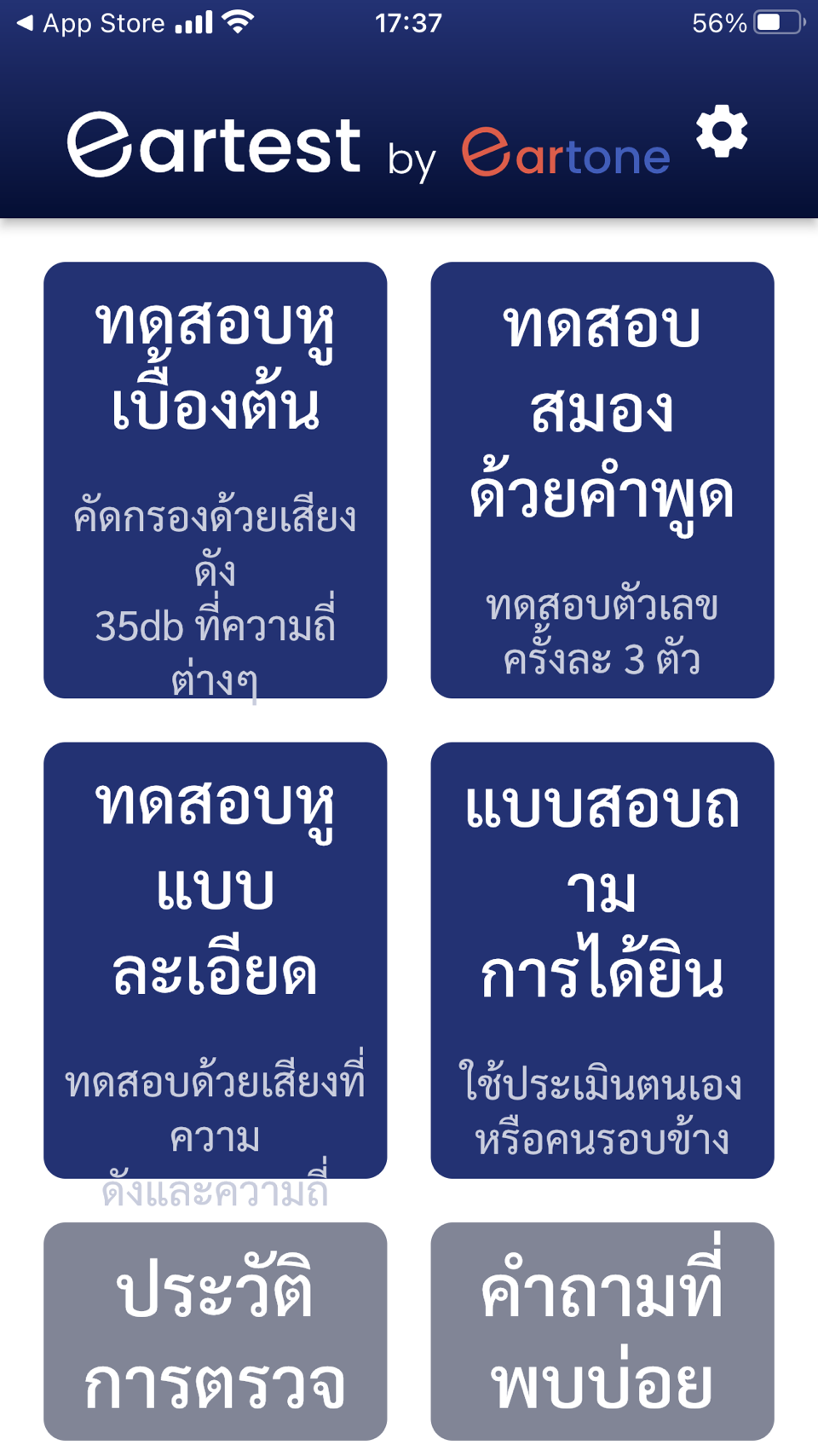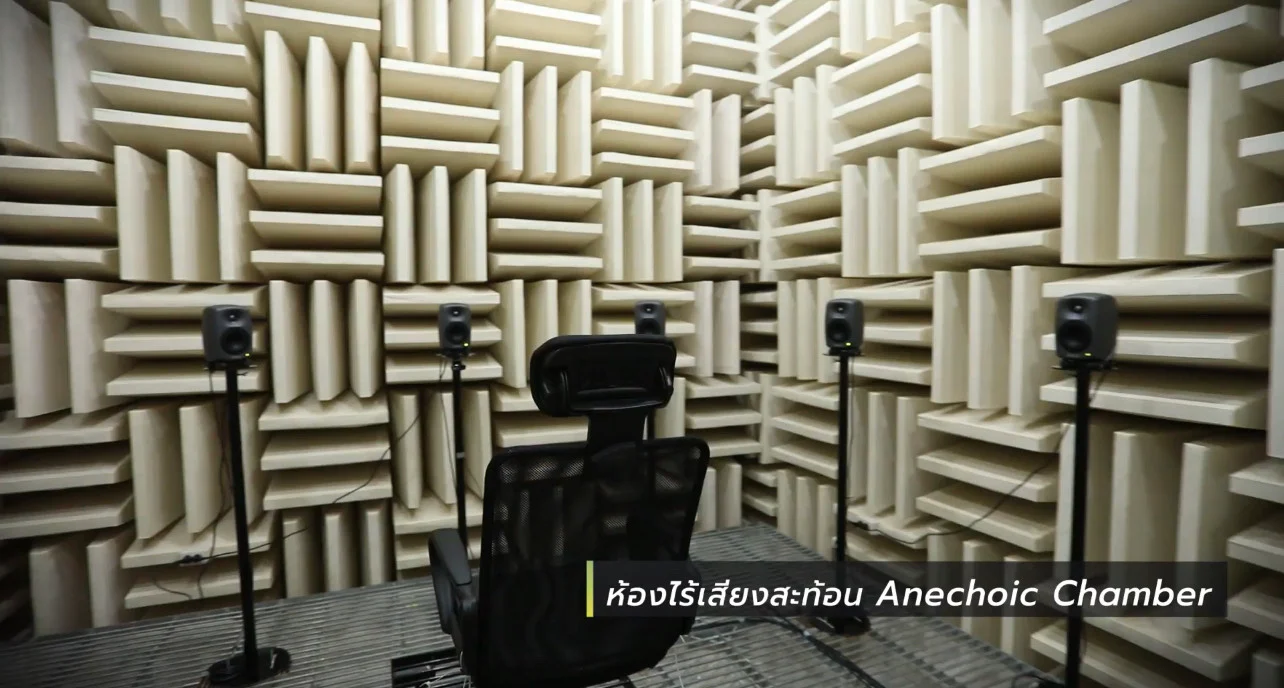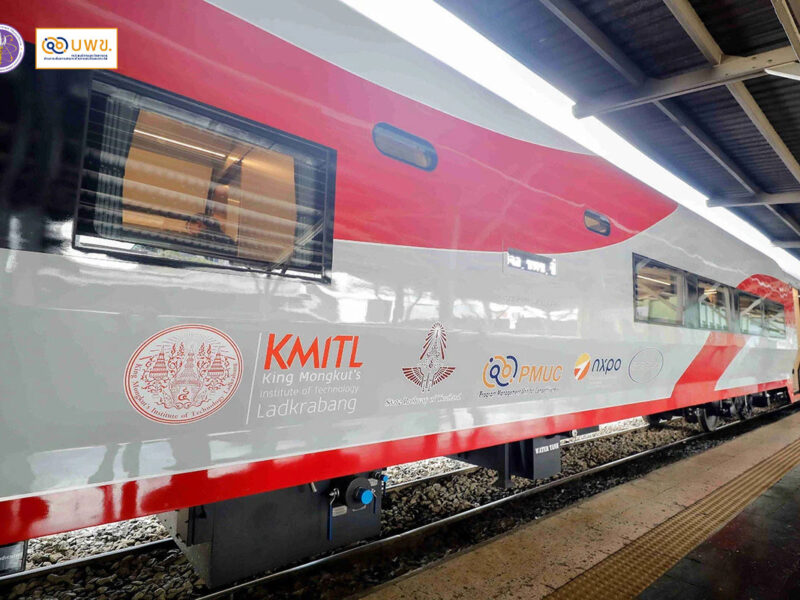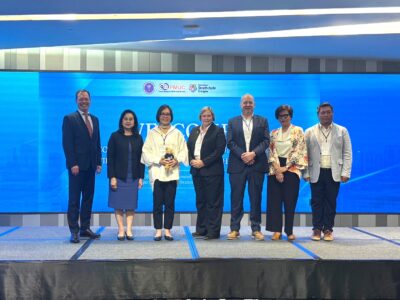On January 19th, 2023 : Assoc. Prof. Siree Chaiseri, Ph.D., director of the PMUC, attended the 14th CHULA IMPACT seminar and gave an opening speech on the topic “Indicating the risk of dementia by using new innovative application to evaluate hearing abilityvia speech assessment”, which has received funding from the PMUCunder the initiative to develop research results and enabling researchers under the NEWTON FUND (LIF7) program.
At the event, Prof. Bundit Eua-arporn, Ph.D., chancellor of Chulalongkorn University, said that applications for hearing examination by speech assessment makes it possible to detect signs of dementia risk in elderly patients. This can help to prevent and slow down the progress of dementia, which is still incurable. It is a technology transfer from England, developed as the first such application in Thailand in cooperation between the Faculty of Medicine, Faculty of Science, Chulalongkorn University, and University College London (UCL). This was well in line with the Thai Speech Acoustic Virtual Reality (Thai-SAVR) research project to test for early signs of dementia, which is a project that has received cooperation from many sectors, including the Royal Academy of Engineering, United Kingdom, through the British Embassy in Thailand and received knowledge transfer from the University College London (UCL), England. Furthermore, the project received support from the Program Management Unit for Competitiveness (PMUC), the National Science and Technology Development Agency (NSTDA). Additional support also came by way of the British Council and the Ministry of Higher Education, Science, Research and Innovation (MHESI) through the Thai- UK World-class University Consortium in collaboration to create a hearing test application via speech assessment in Thai version, allowing people at risk to perform initial self-screening before going to the doctor. This will help to prevent and reduce the risk of dementia that may occur in the future.
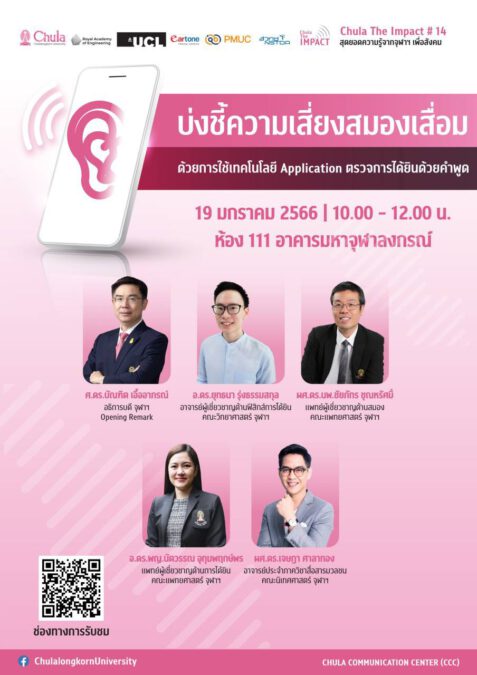
Dr. Nattawan Utumpruekporn, hearing specialist, Faculty of Medicine, Chulalongkorn University, said that “This application is used to test speech recognition to assess the potential risk of dementia. It is a hearing test to assess the ability to comprehend words and sentences in Thai using techniques like Virtual Reality (VR) by simulating real situations in the perception of sound, coming from different directions to examine the brain’s interpretation of language. This will be an indication that in the next 5-10 years whether there is a chance the patient would develop dementia. This is done through the Transforming System through Partnership program under the Newton Fund. Subjects who should undergo the hearing test include people aged 50 years and over. It is a measure of hearing ability in Thai language, which makes it possible to evaluate with most accurate results, and has received certification from the Faculty of Medicine, Chulalongkorn University. The test screens for 10 indicators of dementia risk. The cooperation in this project will help Chulalongkorn University to become the center of laboratory research for speech audiometry in Thailand and in Southeast Asia. The test can be used through a mobile application to quickly perform a self-test.
Mr. Yuttana Rungthammasakul, Ph.D., a lecturer who specializes in hearing physiology, with the Faculty of Science, Chulalongkorn University, said that the “brain” is an important organ that controls the “ear” for efficiency in the hearing function. Research to test hearing ability in this project was done in an echo-free laboratory, which will have 8 speakers with sound coming in from different directions Each was at an angle of 30 degrees, and in the middle of the room there was a chair for the subject to sit and listen to the sound of each speaker. All walls are made of sound-absorbing, sound-dampening wedge-shaped material. Allowing the volunteers to listen to the voice and noise simultaneously helps to measure how well the subject understands the sentence heard at what level, leading to further processing of speech at the brain level, for which the research team has developed an application for voice recognition test on a smart phone that can be connected to headphones. In the near future we will be able to use applications in testing in soundproofing rooms at typical hospitals. Moreover, there are plans to collaborate with the private sector to create a hearing assessment room that can be adjusted to be in different areas, such as health centers in the rural areas, schools and in government agencies in local communities”
Asst. Prof. Chaipat Chunharas, M.D., a brain specilist at the Faculty of Medicine, Chulalongkorn University, said that, “At present, there are 12 million elderly people over 60 years of age in Thailand, and 5-10% or about 1 million are at risk of dementia. Dementia related Syndromes, of which the most commonly found include Alzheimer’s disease and ischemic stroke. If dementia occurs, it will be difficult for the patient and family. Currently, dementia symptoms cannot be treated. Therefore preventing the occurrence of dementia in the first place is very important. Decreased hearing is a major risk indicator of dementia before the actual disease onset. Therefore, the elderly should be screened before the occurrence of this condition by examining hearing and evaluating brain functions. Elderly people should not be complacent. Though the inability to hear or complete deafness is partially due to normal aging, but sometimes it can be caused by Alzheimer’s disease. If in doubt, see a doctor as soon as possible to check the symptoms. to indicate dementia risk using the application called “Eartest by Eartone” either on an IOS or Android phone.
The project to “Develop research results and enabling researchers under the NEWTON FUND (LIF7) program”, which is a project in its 7th year, is a collaboration between the PMUC, the Global Partnership Program, the TSRI, the NSTDA, and the British Embassy, in developing researchers to have sufficient knowledge, understanding, skills, attitudes, and conceptual understanding of good business management. Additional emphasis is given to building entrepreneurial potential for researchers in Thailand and support for research results to be used commercially. A network of researchers and entrepreneurs has been created, as well as an international network of innovations and technologies, led by the LIF or Leaders in Innovation Fellowship program in supporting Thai researchers and entrepreneurs to leverage their research results to develop business plans, and to drive commercialization through training by experts and Venture Capitalists both in and ouside the UK, who have been instrumental in pushing for successful development of the aforementioned hearing assessment applications.

